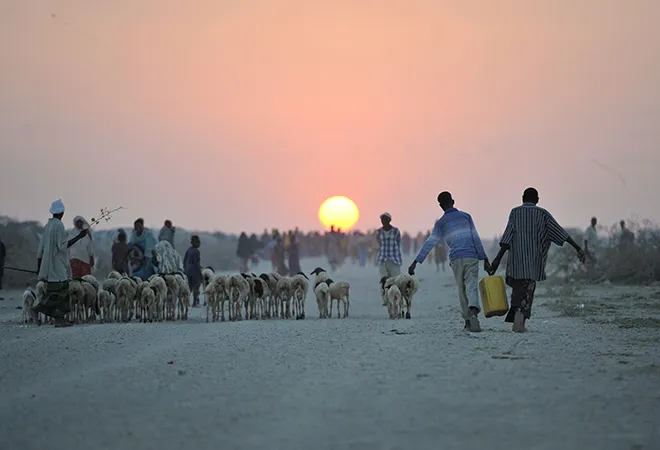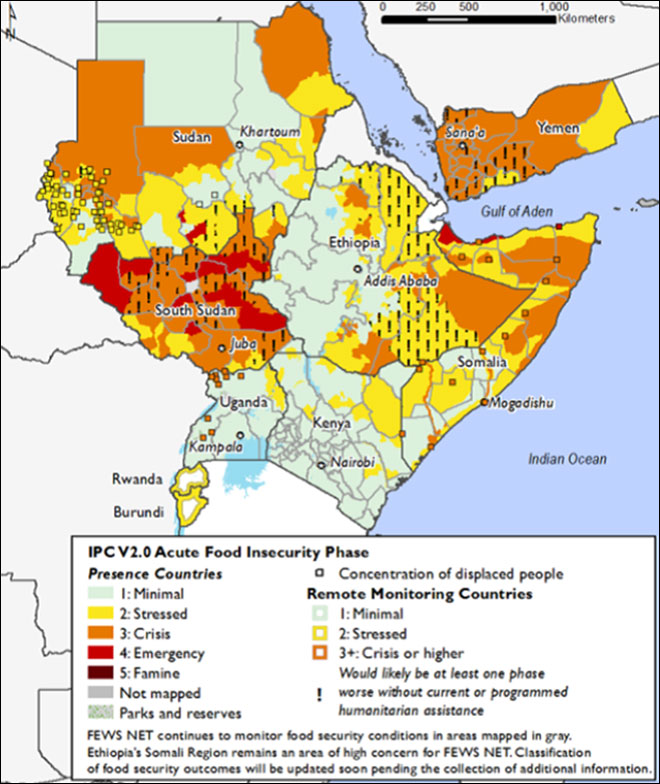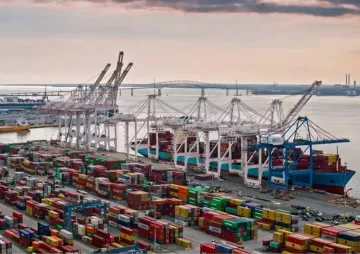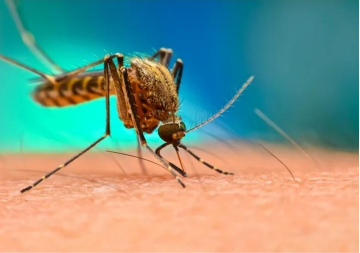
The years after the India-Africa Forum Summit in 2015 have been characterised by high level meetings between Indian and African heads of states and more commitments by India towards African development. Unlike traditional aid relationships between the West and Africa which were based on a donor-recipient model where the recipient had little control over the external aid projects, India adopted the path of cooperation for mutual benefit. Several scholars underlined the relevance of India’s development journey, its challenges, and its institutions and policies for Africa. In fact, India was often regarded as a development innovations laboratory where effective policy solutions could be implemented for applications in other developing countries. Therefore, it is imperative that India’s development cooperation initiatives in Africa reflect the lessons drawn from its own experiences (both successes and failures).
Post-liberalisation, the main challenge for India has been low human development attainments despite high rates of economic growth. The Indian government responded to the situation with the introduction of a series of social welfare schemes like the National Rural Employment Guarantee Act. In recognition of the concerns over poor human development and the need to understand the complexity of national performance on various human development indicators, the NITI Aayog — the premier policy think tank of the Indian government — also rolled out three indices of social progress: School Education Quality Index, Comprehensive Water Quality Index, and Health Index which ranks States according to their performance on education, water, and health outcomes respectively. Sadly, despite the recent spate of starvation deaths, poor nutritional status of Indian women and children, acute farmer distress, low agricultural productivity, and severe impacts of climate change on Indian agriculture, food security has been left out. No doubt, there a number of schemes which are aimed at addressing the above-mentioned challenges, but the need for a comprehensive approach to food security can hardly be overemphasised.
Large parts of South Sudan, Somalia, and Ethiopia are facing food crisis and food emergency situations. Recurrent droughts exacerbated by El Nino and armed conflicts in the region have severely impaired the coping skills of the farmers and pastoralists in the region.
On the other hand, Africa is currently experiencing catastrophic levels of food insecurity. Acute food insecurity and famine-like conditions currently prevail in most of the East African countries. Large parts of South Sudan, Somalia, and Ethiopia are facing food crisis and food emergency situations (see Figure). Recurrent droughts exacerbated by El Nino and armed conflicts in the region have severely impaired the coping skills of the farmers and pastoralists in the region. Although the situation in Rwanda and Uganda, is slightly better, the food security situation is deteriorating to IPC ‘stressed’ levels for poor households in eastern Rwanda affected by recent floods and refugees from Democratic Republic of Congo and Burundi (approx. 154,000). Eastern part of Uganda is experiencing stressed outcomes due to the poor maize crop but here too the regions which house refugees from South Sudan and Democratic Republic of Congo (approx. 1,500,000) are facing acute food insecurity. Therefore, India’s own experiences and challenges with regard to food security should be the central pillar of India’s development cooperation with Africa.
Figure 1: Projected food security outcomes in East Africa
 Source: FEWS NET (2018)
Source: FEWS NET (2018)
Food security has undoubtedly been identified as an important pillar of India’s engagement with Africa several times. For instance, the ‘India-Africa Framework for Strategic Cooperation’ signed in 2015, acknowledged the need for India and Africa to partner for food security: “Both sides recognise the need to improve nutritional and food securities of their peoples and acknowledge the right for adequate food for all and the availability and accessibility of food in quantity and quality sufficient to satisfy the dietary needs of individuals.” India’s cooperation with Africa in the area of agriculture and food security has also grown in recent years but the scope of India’s development cooperation in agriculture is still largely limited to training African scientists and funding small projects. Indian Lines of Credit, the prime instrument of India’s development cooperation, typically fund small irrigation projects or help African countries procure tractors, agricultural equipment or even cows. At the moment, there is no coherent strategy to improve agricultural productivity or food accessibility in Africa which was a key commitment in the India-Africa Forum Summit.
India’s cooperation with Africa in the area of agriculture and food security has also grown in recent years, but the scope of India’s development cooperation in agriculture is still largely limited to training African scientists and funding small projects.
‘Learning with Africa’
A coherent development cooperation programme aimed at addressing food insecurity while drawing lessons from the experiences of both developed and developing countries can be termed as ‘Learning with Africa.’ The objective of such a programme should be to harness India’s scientific and technical capacity to make rapid productivity improvements and higher resilience to climate change in both India and Africa. Valuable lessons can be drawn from the efforts of the United States government, the Ford Foundation, the Rockefeller Foundation, and US land-grant colleges in India’s agricultural transformation. Intractable food crises, recurrent droughts, and famine-prone conditions in much of Africa today is similar to the situation that prevailed in India in the 1960s, however, India-Africa partnership for food security must be very different from US assistance to India. Firstly, unlike the United States, India is not a leader in agricultural research. Also, planning research systems to meet the current needs of Africa is much more complex than the challenges that India faced in the 1960s. Climate change and water scarcity are serious impediments to agricultural transformation. In fact, Indian agriculture is itself beset with numerous problems related to droughts and water scarcity. Thus, cooperation for mutual benefit must be the main pillar of India’s agricultural collaboration with Africa.
Such a programme will be in the interest of both Africa as well as India for many reasons. As stated above, millions are on the brink of starvation in Africa and most countries, particularly those in East Africa, experiencing extreme and unpredictable weather due to climate change. Therefore, African countries have a lot to gain if India’s development cooperation focuses on addressing the continent’s food challenge. On the other hand, it will be beneficial for India as well. On the one hand it will help address some of the similar challenges that India faces. On the other hand, focusing attention on food security will help improve the effectiveness of India’s development cooperation initiatives in Africa in a number of ways. First, executing of a large number of small projects has its own problems with regard to management, ensuring transparency and timelines etc. Second, the development outcomes are less evident in smaller projects. Therefore, it makes more sense for India to devote billions of dollars towards improving agricultural productivity in Africa instead of a large number of smaller projects without any coherent strategy. Third, external development assistance from many other countries, particularly from China is concentrated in infrastructure and agriculture has been neglected by most donors. In fact, there has been a consistent decline in the share of official development assistance in agriculture from the mid-1980s. Although infrastructure is a key ingredient of development, agricultural productivity improvement is the surest way to poverty alleviation, eradication of hunger, and rural development.
In the context of the challenges of climate change and water scarcity that hamstring Africa (even India), greater attention to agriculture is the need of the hour. Moreover, agricultural development also gives a boost to rural consumption which in turn provides an impetus to other sectors of the economy. Therefore, focusing on food security will also help India stand out as a development partner. Lastly, as a net security provider in the Indian ocean region (within which East Africa falls), India can’t ignore food security which is a critical component of human security. In a nutshell, India should take the lead in climate smart agriculture which supports small farmers in both India and Africa and helps address hunger in India and Africa, and also reduces the continent’s dependence on food imports. All that we need to achieve this is far-sighted political leadership.
The views expressed above belong to the author(s). ORF research and analyses now available on Telegram! Click here to access our curated content — blogs, longforms and interviews.




 Source: FEWS NET (2018)
Source: FEWS NET (2018) PREV
PREV


